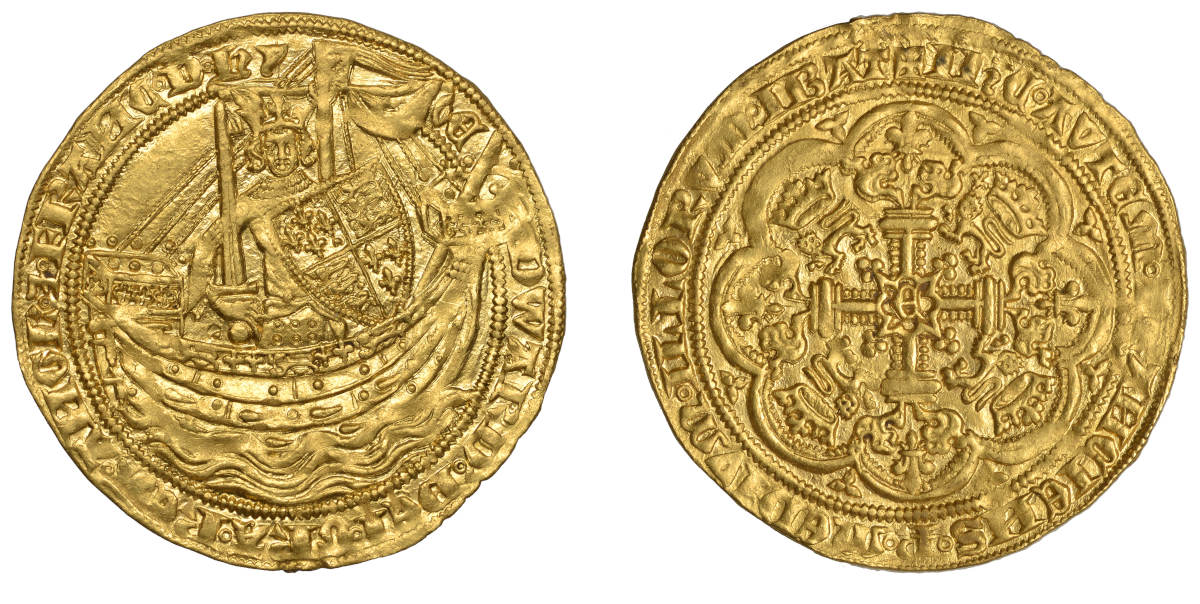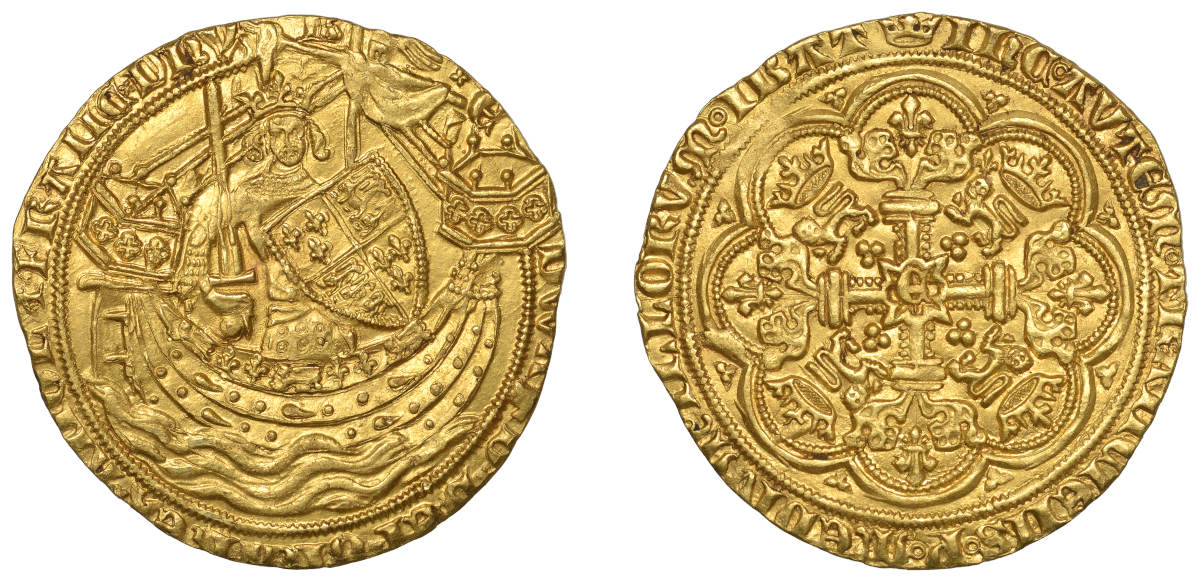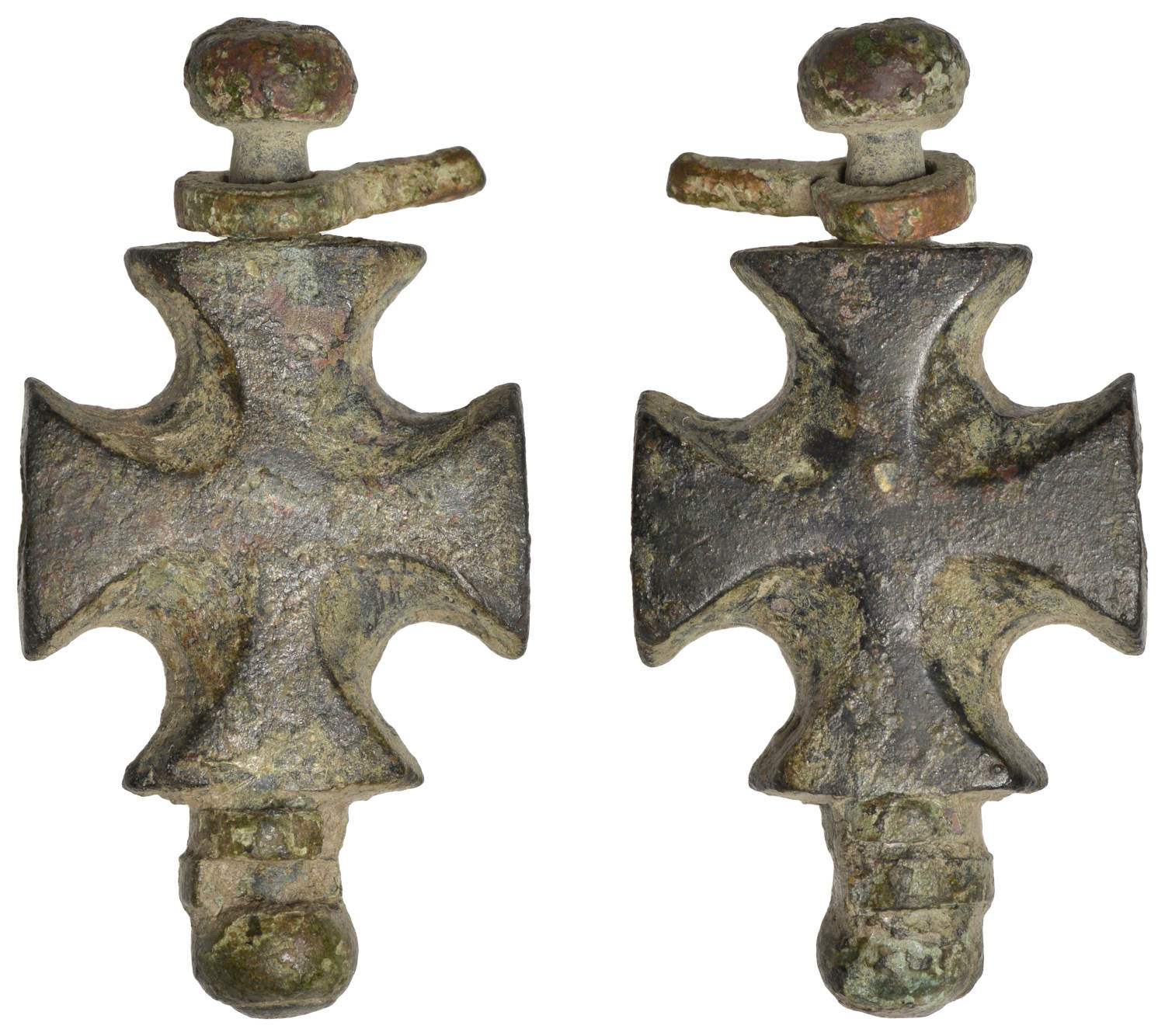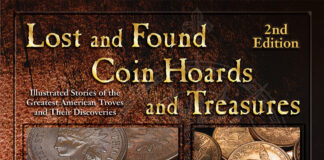A 14th century purse with five gold coins dating from the reign of Edward III (1327-1377) that had been discovered by married couple, Phil and Joan Castle, who live in New Romney in Kent have been metal detecting together for over 30 years sold for £39,550 on Tuesday, May 24, 2022 at Coin, Medal, Banknote and Jewellery auctioneers Noonans (previously Dix Noonan Webb) at their Mayfair saleroom. It had been expected to fetch £12,000-15,000.
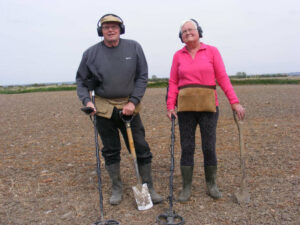
It was in October 2018, while searching one of their favourite ploughed fields at nearby Romney Marsh that Joan using her XP gold max found a broken gold coin on the surface, another signal beside it in the soil revealed a Medieval brass purse bar at eight inches down. Phil came over to help and immediately found a gold coin. Over the next two hours four more gold coins were uncovered in an area of five metres, with Joan finding two herself.
As Nigel Mills, Consultant (Artefacts and Antiquities) at Noonans explains: “The coins were recorded by Jo Ahmet, the finds liaison officer for Kent as Gold nobles of Edward III issued between 1351-61. This was the first significant issue of gold coins that was successful after the previous attempts had failed and the coins were subsequently recalled and melted down.
At the time, these were the highest denomination coins in circulation with a face value of 6 shillings and 8 pence, which is about £2,500 per coin in today’s money. Measuring 3.4 cm in diameter, they portray the King in a ship holding a sword and shield on the obverse with a royal cross on the reverse.”
He continued: “Purse hoards are not common and when they do turn up but they usually contain just silver coins so this one is special. Apart from the broken coin which is a plated contemporary forgery, all five gold coins are in virtually mint state and must have been lost.”
After the sale, Mr Mills said: “Total for the sale was truly amazing with several buyers from USA and many from the UK competing for the coins. The final total was three times the pre- sale low estimate, which is staggering. It shows how important it is to have all the information available so that buyers can have complete confidence in bidding.”
Phil who is 71 years old, used to work at Woolwich Arsenal and was introduced to the hobby of metal detecting by Joan (70) who searched for fossils and loved mudlarking on the River Thames.
He said: “We had no idea what the coins were when we found them,” he goes on to say: “At the time, I was having chemo for Leukaemia so detecting was a great relief.”
Following the sale, Joan commented: “We have just calmed down – we were watching the sale with our mouths open. The experience of the auction was wonderful and almost as exciting as finding the coins!” The hoard has been disclaimed under the Treasure Act and their share of the proceeds will be split with the landowner.
View the other results of the discovered hoard in the Noonans auction archive.
Archeological finds in Great Britain are recorded in the Portable Antiquities Scheme, here you can view some rare and interesting objects discovered.
See more remarkable troves discovered in 2020.




